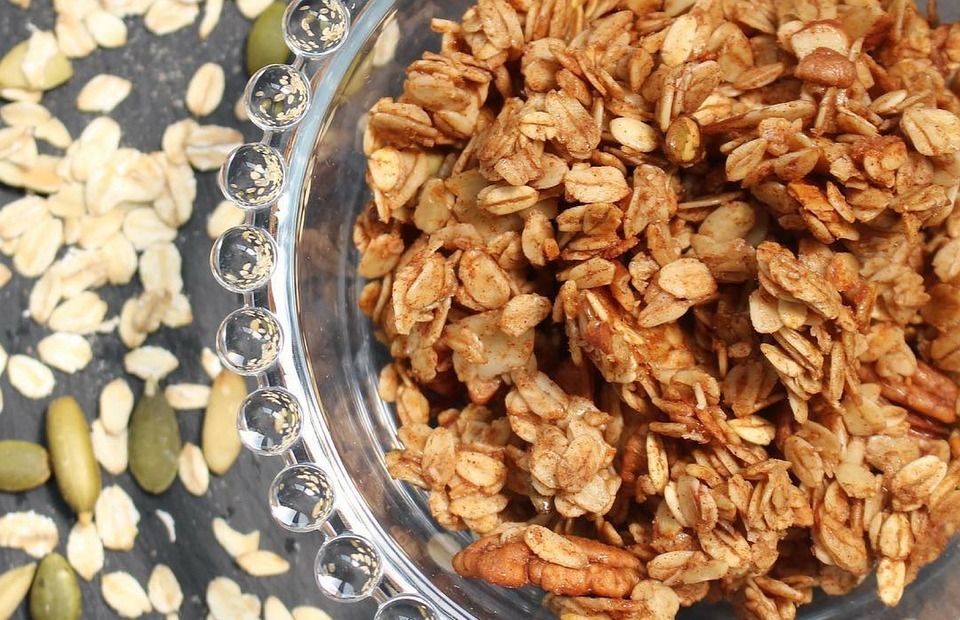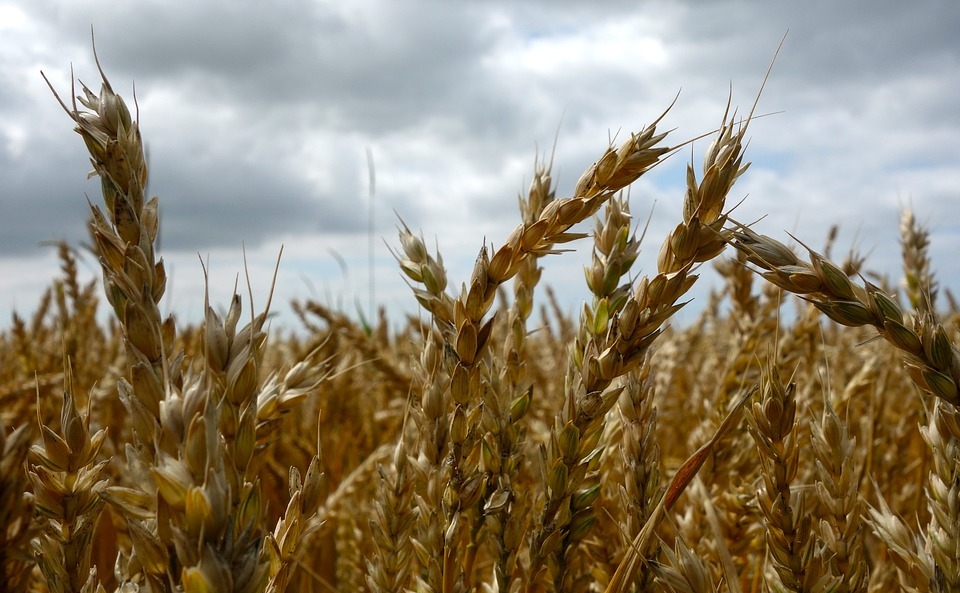The Truth About Oats and Dogs

Oats have become synonymous with health these days, right? They're packed with nutrients, versatile in the kitchen, and even gluten-free. But, can our four-legged companions reap the same benefits? The good news is, yes! Oats can be a healthy addition to your dog's diet, but like anything, moderation is key.
Why Oats are a Good Choice
- Fiber Powerhouse: Oats are bursting with soluble fiber, which plays a crucial role in regulating digestion and promoting a healthy gut. This is especially beneficial for dogs who might have sensitive tummies or experience occasional digestive issues.
- Energy Boost: Oats are a good source of carbohydrates, which are the body's primary source of energy. This makes them a great addition to your dog's diet, especially if you have an active breed or a dog who needs a little extra pep in their step.
- Nutrient Powerhouse: Oats are brimming with vitamins and minerals, including magnesium, iron, and zinc. These nutrients are vital for maintaining overall health and wellbeing, contributing to a healthy coat, strong bones, and a vibrant immune system.
But Wait, There’s a Catch

Alright, so oats are a good thing, right? Not always! While oats can be a healthy treat, it's important to remember that too much of anything can be a bad thing. Feeding your dog too many oats can lead to some unwanted side effects.
Potential Drawbacks of Oats
- Weight Gain: Oats are relatively high in calories, so feeding them in large quantities can contribute to weight gain. This is particularly important for dogs who are already overweight or prone to packing on the pounds.
- Digestive Issues: Some dogs may experience digestive upset, like gas or diarrhoea, if they eat too many oats. This is usually due to the high fiber content. Remember, any new food should be introduced gradually, and monitoring your dog's reaction is crucial.
- Allergies: While not as common, some dogs may be allergic to oats. If your dog shows signs of an allergic reaction, such as itching, swelling, or vomiting, stop feeding them oats and consult your vet immediately. It's important to be aware of these potential sensitivities.
How to Safely Introduce Oats

You've got the lowdown on oats, but how do you introduce them to your furry friend? Here's the key, as I've learned from countless fosters: start slowly and watch closely.
Start Small and Go Slow
- Tiny Treats: Begin by giving your dog a small amount of cooked oats, maybe a teaspoon or two. This will help you gauge their reaction and make sure they don't have any digestive issues. Remember, it's better to err on the side of caution.
- Observe Carefully: Watch your dog closely for any signs of allergies or digestive upset. If everything seems fine, you can gradually increase the amount over a few days, but only if their little tummy is happy.
Choosing the Right Type
- Plain and Simple: Plain, rolled oats are the best choice for your dog. Avoid flavoured or sweetened oats, as they can be high in sugar and unhealthy additives. My rescue pup, Max, loved plain oats cooked with a bit of water. It was a simple treat that he truly enjoyed.
- Steel-Cut Oats: Steel-cut oats are another good option, but they take a bit longer to cook. Just make sure they're cooked thoroughly before feeding them to your dog. We want those oats nice and soft!
Cooking is Key
- No Raw Oats: Never feed your dog raw oats. The starch in raw oats can be difficult to digest and may cause digestive upset. Always cook those oats to perfection!
- Cooked to Perfection: Cook oats according to package directions, making sure they're fully cooked and soft. You can add a bit of water, broth, or even mashed sweet potato to make them more palatable. A little bit of creativity can go a long way when it comes to your dog's treats!
Beyond the Basic Bowl: Getting Creative with Oats
Okay, so oats are good, but they can get a bit boring, right? Don't worry, we've got you covered! Here are some fun and creative ways to incorporate oats into your dog's diet, making mealtime more exciting for both of you.
Oats for Every Occasion
- Homemade Treats: You can use oats to make healthy homemade treats for your dog. There are countless recipes online, from basic oat cookies to more elaborate peanut butter chews. It's a great way to bond with your dog and control the ingredients.
- Oatmeal for Breakfast: A simple bowl of oatmeal can be a healthy and tasty breakfast option for your dog. You can add a bit of plain yogurt, fruit, or even some cooked chicken or fish for added flavor and protein. It's a good way to start the day!
- Toppings and Mix-Ins: Sprinkle oats over your dog's regular food for a boost of fiber and nutrients. You can also mix oats into their kibble or wet food. It's a simple way to sneak in some extra goodness.
Recipe Ideas
Here's a simple recipe for a basic oat treat that my foster dogs loved:
Peanut Butter Oat Cookies
- Ingredients: 1 cup rolled oats, 1/2 cup peanut butter (choose a brand without xylitol, which is toxic to dogs!), 1 egg, 1/4 cup water
- Instructions: Preheat oven to 350 degrees Fahrenheit. Mix all ingredients together in a bowl until well combined. Drop by spoonfuls onto a baking sheet lined with parchment paper. Bake for 15-20 minutes, or until golden brown. Let them cool completely before giving them to your furry friend.
When Oats are a No-Go
We've discussed the benefits and potential pitfalls of oats. But there are situations where oats might not be the best choice for your dog. Here's when it's best to exercise caution.
Dogs with Specific Conditions
- Diabetes: Oats can raise blood sugar levels, so dogs with diabetes should only have them in moderation, or not at all, under veterinary guidance. It's important to work with your vet to create a safe and effective dietary plan for your diabetic dog.
- Digestive Issues: Some dogs with digestive issues may not tolerate oats well. If your dog has a sensitive stomach, it's best to err on the side of caution and consult your vet. They can help determine if oats are a suitable addition to their diet.
- Allergies: As mentioned earlier, some dogs may be allergic to oats. If your dog shows any signs of an allergic reaction, stop feeding them oats and seek veterinary advice. It's essential to address any allergies promptly to ensure your dog's well-being.
Always Consult Your Vet
It's always a good idea to talk to your vet before adding any new foods to your dog's diet, especially if they have any health conditions. They can help you determine the right amount of oats and ensure it's safe for your furry friend. They're the experts when it comes to your dog's health, and their guidance is invaluable.
(Part 5) Beyond Oats: Exploring Other Healthy Grains for DogsExpanding Your Dog's Grain Options
Oats are great, but it's always good to have options, right? Here are some other healthy grains that your dog can enjoy, adding variety and nutrition to their diet.
Other Grain Options
- Brown Rice: Brown rice is a good source of fiber and protein, and it's also easy to digest. You can cook it up plain and add it to your dog's food, or use it to make homemade treats. It's a versatile and nutritious option.
- Quinoa: Quinoa is a complete protein, meaning it contains all nine essential amino acids. It's also a good source of iron and fiber. Just like oats, it can be added to food or used in treats. It's a great choice for dogs who need a protein boost.
- Sweet Potatoes: While not technically a grain, sweet potatoes are a great source of fiber and vitamins. They can be cooked and added to your dog's food or used in treats. They're a delicious and nutritious treat that many dogs enjoy.
The Verdict: Is It Worth It?
Alright, so we've gone through all the pros and cons, the recipes, the risks, and even some alternatives. So, what's the verdict? Should you feed your dog oats? Ultimately, it depends on your dog's individual needs and preferences.
Personal Preference
If your dog enjoys oats and doesn't show any signs of digestive upset or allergies, then there's no reason not to include them in their diet. Just remember to feed them in moderation and make sure they're cooked thoroughly. For me, it's all about finding what works best for each dog. Max, my rescue, loved oats, and his coat shone! But my current foster pup, Bella, prefers sweet potato. It's about individual needs and finding what makes them happy and healthy.
Healthy Choices
Oats can be a healthy and delicious addition to your dog's diet, but they shouldn't be the only thing they eat. A balanced diet of high-quality protein, healthy fats, and other vegetables and fruits is essential for their overall health. It's about providing them with a variety of nutrients to keep them happy, energetic, and thriving.
(Part 7) Your Dog's Health Comes First: A Final Word of AdviceAlways Consult a Professional
I'm a big fan of sharing knowledge, but remember, I'm not a vet. If you have any concerns about your dog's diet or health, please consult a qualified veterinarian. They can provide personalized advice based on your dog's specific needs and medical history. Always listen to the experts, especially when it comes to your furry friend's health.
(Part 8) FAQs: Answers to Your Top QuestionsFAQs: Oats and Your Dog
Let's clear up some common questions about oats and dogs:
1. Can I give my dog raw oats?
No, it's not safe to feed your dog raw oats. The starch in raw oats can be difficult to digest and may cause digestive upset. Always cook oats thoroughly before feeding them to your dog. We want to make sure those oats are nice and soft and easy for them to digest.
2. How much oats can I give my dog?
The amount of oats you can feed your dog depends on their size, weight, and activity level. A good starting point is a teaspoon or two per day. You can gradually increase the amount over a few days, but always observe your dog for any signs of digestive upset. Start small and listen to your dog's cues.
3. Can all dogs eat oats?
While most dogs can safely eat oats, some may have allergies or digestive issues. It's important to introduce oats gradually and monitor your dog closely for any adverse reactions. If you're unsure, talk to your vet. They can provide tailored advice for your furry friend.
4. Are oats better than kibble?
Oats are a good source of nutrients, but they shouldn't be considered a complete replacement for kibble. A balanced diet includes a variety of foods, including high-quality kibble, healthy treats, and fresh vegetables and fruits. Oats are a nice addition, but not a substitute for a complete diet. Kibble provides essential nutrients that oats alone cannot provide.
5. Can I give my dog oatmeal every day?
You can give your dog oatmeal occasionally, but it shouldn't be a daily staple. A balanced diet includes a variety of foods, and offering oatmeal every day could lead to dietary imbalances. A little bit of variety is always a good thing for your dog's health and happiness.
There you have it! Oats can be a healthy and tasty treat for your dog, but it's important to remember that moderation is key. Always consult your vet before making any significant changes to your dog's diet, and enjoy those happy tail wags!
Everyone is watching
-

Can Dogs Eat Bananas? A Guide to Safe Treats
DOGS & PUPPIESThis comprehensive guide will delve into the world of canine nutrition, focusing on the popular question: can ...
-

Can Dogs Eat Oranges? (Is It Safe or Toxic?)
DOGS & PUPPIESThis article delves into the question of whether dogs can safely consume oranges. We'll explore the nutrition...
-

Can Dogs Eat Grapes? The Shocking Truth About This Fruit
DOGS & PUPPIESThis article delves into the controversial topic of grapes and dogs, exploring the potential dangers associate...
-

Why Do Dogs Eat Poop? Understanding Coprophagia in Dogs
DOGS & PUPPIESThis article delves into the perplexing phenomenon of coprophagia, the act of eating faeces, in dogs. We explo...
-

Can Dogs Eat Shrimp? A Guide to Safety and Risks
DOGS & PUPPIESThis comprehensive guide dives into the world of shrimp and dogs, exploring the potential benefits and risks a...
